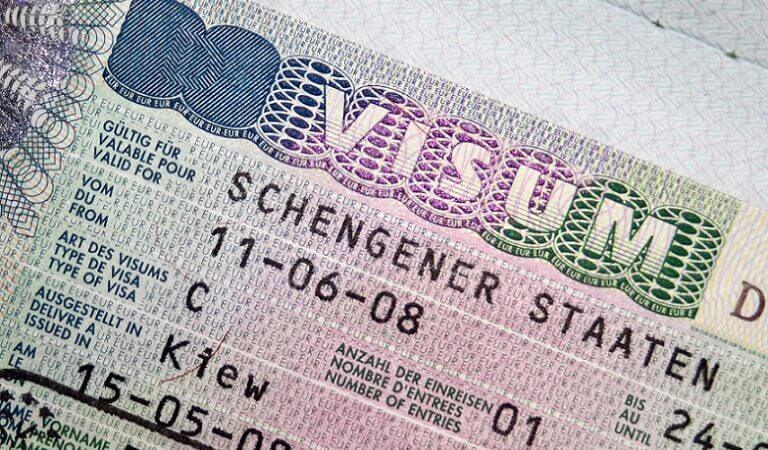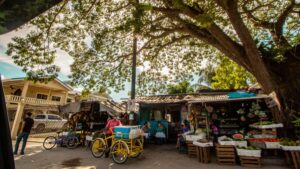Spain Retirement Visa Requirements and Application Process – SchengenVisaInfo
7 min read
Retirement in Spain has several advantages, including affordable living expenses, a good standard of living, and first-rate healthcare.
Spain does not grant retirement visas, although it has attractive retirement perks. For those who desire to relocate to Spain in order to retire, there are other alternatives available.
How Can Expats Retire in Spain?
Since Spain does not provide a specific retirement visa for foreigners, you must take other options into consideration before retiring there. The most popular retirement options for expats are the Spain Golden Visa and Spain Non-Lucrative Visa.
Spain Non-Lucrative Visa for Retirees
A Spanish non-lucrative visa allows you to enter the country with the intention of residing there but not working. It falls within the category of a Spanish long-stay visa. The primary prerequisite for obtaining this visa is having enough money to support oneself without needing to find employment in Spain.
How to Apply for a Spain Non-lucrative?
To apply for a Spain Non-Lucrative visa, you need to follow these steps:
- Schedule an appointment at the embassy. In order to apply for your Spain Retirement Visa, you will need to do so in your country of residence. In order to lodge an application, you will need to contact your nearest Spanish Embassy or Consulate via email or telephone.
- Gather the required documents. The documents you need when you apply for a Spain Non-Lucrative visa include the following:
- A Non-Lucrative visa application form.
- Form EX-01.
- Your valid passport. Your passport must be issued within ten years, valid for at least one year, and should have one blank page at least.
- 2 passport photos. Photos must follow the Schengen photo requirements.
- A notarized document explaining your reason for the application. The document must include why you are requesting the visa, your purposes, the place, and the length of your stay in Spain. Note that the document should be translated into Spanish by a certified translator.
- Medical certificate. Obtain this certificate from an authorized doctor in your country of residence. It should indicate that you do not have any diseases that pose a risk to the public health. On the day this certificate is submitted, it must be no more than 90 days old.
- Health insurance. You need valid health insurance from a Spanish company.
- Proof of sufficient income. As a retiree, you need to prove that you have more than €27,792.96 in a bank account, plus €6,948.24 monthly income for each member you bring with you.
- Original police clearance certificate. This document confirms you haven’t committed any illegal activities in the last five years. At the time of submission, this document should not be older than three months.
- Proof of relationship to dependents. You need a marriage certificate for your spouse and a birth certificate for your children.
- The SpTH health control form. You have to complete the form manually 48 hours before traveling to Spain. Then you will get a Qr code which you have to present to Spanish officials upon arrival.
- NIE number. Every foreign visitor to Spain who intends to stay for longer than six months is given an NIE number, which is a personal, unique number. Before you apply for a visa at the consulate, you need request this number.
- Attend your visa appointment. At the embassy, you will have a personal interview with Embassy officials. The interview will consist of a few simple questions about your trip to Spain. Ensure that your answers are truthful and accurate. In addition, you will need to submit the documents you gathered and pay the visa application fee. After the interview and submission of your documents, embassy officials will collect your biometric information.
- Complete the payment requirements. The current visa fees for a non-lucrative visa for Spain are:
- US citizens need to pay a fee of €123.
- Citizens of Canada need to pay €507.
- An amount of €80 is required from the nationals of other world countries.
- Collect your retirement visa. Within 2-3 months, you can expect feedback. You will be contacted by mail or email if your visa application is successful. To obtain your visa, you must go to the Spanish Embassy where you applied. This must be done within a month of receiving feedback.
- After you arrive in Spain, apply for a Foreigner Identity Card. Once you arrive in Spain, you have one month to apply for a Foreigner Identity Card at the Foreigners office where you are staying.
Spain Golden Visa for Retirees
Officially called the Spain Investor visa, a Golden Visa for Spain is a residency permit given to non-EU nationals who make a major investment in Spain, such as purchasing real estate, funding a business, or creating employment possibilities.
How to Apply for a Spain Golden Visa?
In order to get a Spain golden visa, you need to complete the following steps:
- Make one of the eligible investment options. Firstly, you have to choose your favorite investment option.
- Collect the required documents. The documents you need are:
- Spain long-term visa application form.
- Two passport photos. Make sure they follow picture guidelines for a Spanish visa.
- Your valid passport. It must be issued within ten years and have at least two blank pages.
- Proof of country of residence.
- Clear police record. This document confirms you haven’t committed any illegal activities in the last five years. At the time of submission, this document should not be older than three months.
- Proof of sufficient funds. You need to prove you have enough funds to support yourself and your dependents financially.
- Medical certificate. Obtain this certificate from an authorized doctor in your country of residence. It should indicate that you do not have any diseases that pose a risk to public health.
- Health insurance. You need valid health insurance from an authorized Spanish provider.
- The SpTH health control form. You have to complete the form manually 48 hours before traveling to Spain. Then you will get a Qr code which you have to present to Spanish officials upon arrival.
- Documents accrediting your investment. You need additional documents proving your kind of investment.
- Apply for a Golden Visa. Within three months of making the investment, you must submit your application to the nearest Spanish Embassy. A legal representative can represent you, or you can apply on your own. At the embassy, you should submit all the required documents.
- Pay the fees. A processing fee is €80 for each applicant.
- Wait for the results. The process of approval or rejection takes around 20 days.
- Get your Golden visa. Once your application is approved, you can get your golden visa.
How Long Does It Take To Get a Retirement Visa for Spain?
The application process for a Spain non-lucrative visa for retirees lasts 2 to 3 months. Whereas the golden visa process takes around 20 days.
How Much Do the Visas Cost?
The current visa fees for a non-lucrative visa for Spain are:
- US citizens need to pay a fee of €123.
- Citizens of Canada need to pay €507.
- An amount of €80 is required from the nationals of other world countries.
The visa fees for a Spain golden visa are €80 for each applicant.
How Long Can Retirees Stay in Spain?
Spain’s golden visa is issued for one year and can be converted into residence permits for investors later. Two years is the validity period for the residence permit you receive, and it can be renewed every two years.
Spain’s non-lucrative visa is valid for one year. Within this time frame, you must submit an application for a Non-Lucrative Residence Permit, which will be granted for two years and may be extended for an additional five years.
Can I Bring Dependents as a Retiree in Spain?
With a Spain golden visa, in your application form, you can also include family members, such as:
- Your spouse.
- Your unmarried, minor children or any adult children who are dependent.
- Dependent elderly parents.
Through a joint application, with a Spain non-lucrative visa, you can bring your spouse and children to Spain.
Why Should I Retire in Spain?
Retiring in Spain has many benefits:
- Affordable living costs. Spain has affordable living costs. If you have sufficient financial resources, living expenses for single retirees are lower and more manageable than for couples, who may get by on $20,000 to $22,000 annually.
- Spain has a high-quality healthcare system, guaranteeing universal coverage for all residents. Some foreign retirees who live in Spain are eligible for free healthcare. This, however, will depend on your country of origin and any rapprochements that may exist between that nation and Spain.
- Spain has a comparatively low crime rate and is ranked 38th in terms of safety and security. Although Spain has a much lower crime rate than most other nations in the globe, there are still a few simple security precautions you should take to prevent theft or scams.
What Are Some of the Best Cities to Retire in Spain?
Some of the best destinations to retire in Spain include:
- Barcelona is famous for its outstanding football team, stunning architecture, lively nightlife, sandy beaches, and world-class cuisine.
- Madrid is a major cultural capital in Spain. Madrid is one of the busiest European capitals because of shows and cultural activities. Madrid is also home to impressive architecture, incredible museums, and stunning outdoor plazas.
- Mallorca Island. Off the coast of Valencia, Mallorca Island is a tranquil piece of the Mediterranean. Anywhere on the island, hiking along the shore or on the steep peaks of Serra de Tramuntana will reveal a fresh and unforgettable natural wonder.
- Marbella has a reputation for being a glam resort town. This southern town in Spain is popular for its fascinating beaches, amazing nightclubs, and facilities for boats and jachts.
- Sandy beaches, lovely weather, and Alicante’s prominence as a tourist destination are its main draws. Temperatures are generally consistent throughout the year due to its location on the Mediterranean coast, and the province is well connected both nationally and internationally.
Did you find this page helpful?
Yes No
Discover more from Slow Travel News
Subscribe to get the latest posts sent to your email.



